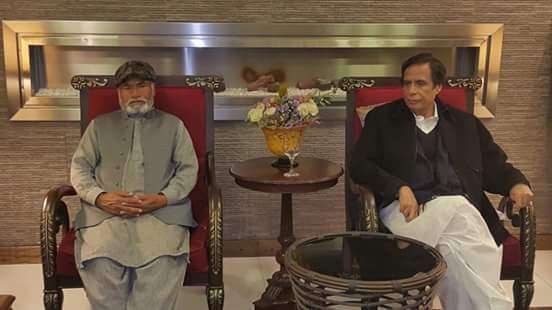Lambardar
Lambardar or Numberdar (Punjabi, Urdu: لمبردار or نمبردار) is a title in India and Pakistan and including Kashmir which applies to powerful families of zamindars of the village or town, a state-privileged status which is hereditary and has wide ranging governmental powers: the policing authority of the village, and many other governmental and administrative perks.[1] In contrast the Zaildar who was the grand jagirdar and had the power over 40 to 100 villages respectively.
That has resulted in a feudal system perpetrating the Pakistan Senate and its elected representatives. Almost all elected leaders of the state have been from the landed and feudal gentry in many cases holding the title of lambardar. Most Presidents and prime ministers also have been from feudal stock, with the exception of martial law administrators and generals, who led coups.[2]

The first female Lambardar in West Pakistan was Begum Sarwat Imtiaz who took oath in 1959. She was Lambardar of Village Chak 43/12 L, Chichawatni, District Montgomery (now Sahiwal). Presently her daughter Begum Arshia Azhar is Lambardar of said village. That was recognized as a milestone for women empowerment in Pakistan and the Muslim world.[3]

Legal description
The Land Revenue Act, 1967
Section 4 (28): Village Officer: person appointed under this Act whose duty is to collect, or to supervise the collection of, the revenue of an estate and include Kanungos, Patwaris, Service Centre Officials and Headmen (Lambardars).
Section 36: The Board of Revenue may, with the previous approval of Government, make rules to regulate the appointments, duties, emoluments, punishments, suspension and removal of Village Officers.[4]
The West Pakistan Land Revenue Rules, 1968
Rule 16.
Number of headmen.
(1) A sufficient number of headmen shall be appointed to every estate, and this number when once fixed shall not be increased except by or under the order of the Commissioner.
(2) Except as provided in Rule 21, if an estate or a considerable portion thereof is owned by Government, the headmen may be appointed from among the tenants and in other estates he shall be appointed from among the land owners.
(3) The lessee of an uncultivated or forest estate owned by Government shall, during the currency of his lease, be the headmen thereof.[5]
See also
References
- ↑ "The Punjab Land Revenue Act". W.P. Act XVII of 1967. Government of Pakistan. Retrieved 14 March 2012.
- ↑ Hossein Borr, Reza. "Why Zardari has been vilified?". Global Politician. Retrieved 14 March 2012.
- ↑ (20 March 2016)" CAMP,
- ↑ http://punjabrevenue.nic.in/pbrev_act87_II.htm
- ↑ http://admis.hp.nic.in/hprevenue/pdffiles/landcode/punjablandrevenuerules.pdf